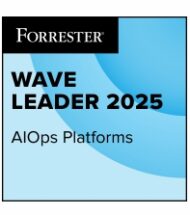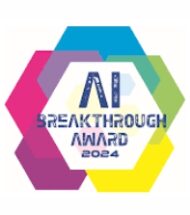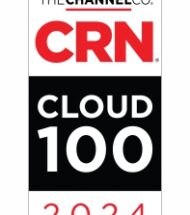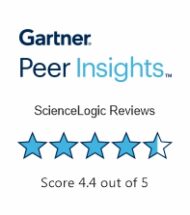Host: Welcome to another episode of ExtraMile by WisdomPlexus, where we bring you closer to tech leaders who are shaping the future of technology. I'm your host, Rittika, and today we are delighted to have Priyanka Kharat, Vice President of Product and Engineering at ScienceLogic. A Pune University graduate who began her journey in India's thriving tech education system, Priyanka now leads innovation at the forefront of AIOps.
For those who are not familiar, ScienceLogic is a pioneer in AI and ITOps, helping businesses monitor, predict, and resolve IT issues faster using AI and automation. So, let's explore the evolving landscape of AIOps and how ScienceLogic is driving innovation in IT operations with none other than a key contributor to the firm's growth.
Hello Priyanka, it's a pleasure to have you with us today.
Priyanka: Hello Rittika, pleasure as well.
Host: So, you have held leadership roles at companies such as NovaSignal and Cisco before joining ScienceLogic. What were the key experiences that influenced your style of leading product and engineering teams, especially in the AIOps space?
Priyanka: Thank you for that question, Rittika. And really, I've been privileged to work with some of the best leaders in the industry, both at Fortune 100, 500 companies as well as startups. And the lessons remain the same.
It all starts with being curious and open-minded to new solutions, not worrying about details that might bog you down, but getting into the bowels of the technology. And then while doing that, prioritizing your team's well-being and alignment with business mission. And in a space like AIOps, these lessons couldn't be more critical because what you're doing is trying to get these advanced technologies like generative and agentic AI and bring them into day-to-day workflows and processes impacting people, technology, and rest of the organization.So these are hardened lessons. They come handy every day in my decision-making.
Host: It's absolutely amazing to hear how your past experiences and curiosity shaped your current role at ScienceLogic. So moving ahead, ScienceLogic is a leader in AIOps, and it helps businesses to predict and resolve IT problems faster. So how do you see AI and automation transforming IT operations in the next five years? And how is ScienceLogic working with agentic AI?
Priyanka: Great question. So for the last 20 plus years, our portfolio has addressed enterprise IT's escalating challenges of efficiency and agility against no bounds of technological headwinds. In our portfolio, we've accomplished our goals by following one rule, and that is not leaving automation as an exercise of a customer.
This rule drives needs of the most comprehensive telemetry collection, superior data management, advanced reasoning, and troubleshooting capabilities and recommendation of actions that can be automated. Now, interestingly, most of the AIOps platforms, including the first version of ours has advanced customers from basic runbook automation to orchestration of multiple workflows. But with the advent of agentic AI, which can be thought of as a system that affords agency to drive highly contextual, autonomous, and goal-oriented agents to coordinate and cooperate on sophisticated tasks.
This innovation, this technological leap is going to fundamentally change how we plan, work, and allow us to become more autonomous by letting agents work hand in hand with humans. So I am very excited about what's coming in the next five years. We'll see a huge uptick in adoption of these systems.
At ScienceLogic, we've already started building our own agents that interface over standard protocol and framework. So we are adopting a much more open system like MCP and A2A. And really, Ritika, it is because of this, we have been recognized as pioneers in AI innovation by Forrester earlier this year and were named a visionary by Gartner just last week. And so we will continue to heavily invest in agentic AI and redefine observability, bring it into the agentic era of intelligence and autonomous IT.
Host: Absolutely. It's amazing how ScienceLogic is unlocking the potential of agentic AI while addressing IT challenges. So next up, ScienceLogic AI platform provides unified monitoring, AI-driven insights, and automation. What are some of the most exciting innovations you have worked on at ScienceLogic?
Priyanka: So our last year started off with a great launch of Skylar AI Suite. This is a suite that leverages best-in-the-industry technologies from advanced analytics, supervised reasoning to generative and agentic AI. Skylar Analytics provides enterprise IT teams with predictions on key resources, reasons over time series of metrics and spots anomalies real-time, enabling data-driven decisions with unprecedented accuracy.
When you look at automated root cause analysis, that is key in automating troubleshooting and minimizing mean time to repair, which is very critical when you deal with application and environmental mission-critical workflows. And it goes further in identifying root cause, delivers it in plain language along with recommended actions. Something like this can save teams hours, even days of manual effort.
And then the third thing I'm very excited about is really advisor offering of Skylar AI Suite that acts as a proactive advisor. And these advisories are displayed. We are a transformative human AI interface delivering persona-based insights with recommended actions.
Now, what you are doing all of a sudden is amplifying human intelligence. And we don't want to stop there. In fact, our architecture, as I mentioned earlier, is designed to start operating as collection of LLM agents.
Some of those could be ours. Some of those could be from the industry. And with that kind of a solution, we are going to give our customers an ability or agency, if you will, to examine their operations and start truly building autonomous processes and unleash this highly contextual AI-driven frontier of automation.
So I really believe that it is our ability to lead and hold our customers hand to leverage these technologies that has got us the recognition by different analyst firms as well as customer success surveys. And I really believe that is the future that we would love to be part of and are already beginning to see roots of.
Host: So that's really fascinating. So our next question around Skylar AI Suite only. How does the Skylar AI Suite work in tandem with ScienceLogic AI Platform?
Priyanka: So ScienceLogic AI Platform is the overall solution, and it serves as a foundation for many product components, including Skylar AI Suite. The most critical thing that ScienceLogic AI Platform performs and provides is really critical observability that enables teams to navigate complexities of modern IT and network visibility with confidence. From initial insights to automated solution, the ScienceLogic AI Platform ensures seamless operations across all systems to provide end-to-end visibility.
And this works very well in tandem with the Skylar AI Suite of services like analytics, advisor, automated root cause analysis, which we just talked about, to empower organizations to intelligently process and respond to today's business challenges automatically at scale with unmatched speed.
Host: So moving ahead, according to you, what acquisitions and partnerships do you see fueling growth in AIOps?
Priyanka: Great question. As enterprise IT technology providers like ourselves race to deliver integrated AI-powered operations and observability platforms, there is bound to be rich field for strategic acquisition, partnerships, and alliance. Few areas that really come to my mind are rounding up unified visibility, integration of higher-order algorithms, agentic AI, for example.
There's a good opportunity for strategic partnerships with hyperscalers because infrastructure and GPUs tend to be a critical part of this new AI innovation, and even collaboration with leaders like OpenAI. So I see that there is going to be a lot of consolidation in the space. There's going to be best-of-both-world situations where you'll see competition coming together and being a unified solution.
Another area to look out for is governance, AI governance, security, compliance. So what we will end up seeing is, as with any technological leap, you will see consolidation, you'll see collaboration, and you'll also see some healthy competition with new areas of growth.
Host: It's clear that smart collaborations are going to play a big role going forward. Next up, what are the biggest challenges you are facing in delivering perfect IT operations? How is ScienceLogic addressing those challenges?
Priyanka: You know, that is a very important question, Rittika, and in my opinion, there are really three challenges that enterprise IT leaders face when delivering this AI-driven IT world. It all starts with maintenance of an enterprise data source that can act as a single source of truth for everything, from advanced analytics, model training, or fine-tuning, to become the basis, in case of domain-based LLM, a reliable retrieval-augmented generational rack system. Information gaps created by incomplete, inconsistent, biased, or outdated data sets not only impacts prediction precision in case of traditional AI but also leads to unfortunate hallucinations in case of generative AI, increasing governance overhead, and also risk to the trust that the system can build.
The second very important challenge is really cultural refinement. It's very critical that even before you start implementation of these advanced technologies, as leadership, you start thinking about whether and how you need to reframe your culture to basically embrace this new innovation. Because think about it this way, any AI-driven workflow or innovation is going to be focused on reducing toil and or amplifying human intelligence, which means you have to start inculcating a growth mindset among your people.
To start upskilling themselves, you'll have to reorganize them into more roles of AI quality overseers or governance and compliance implementer than actually doers of the job. And that needs a lot of planning, that needs a lot of education, and it really needs patience. The last one I will leave with you is really definition of a roadmap where AI transformations can start in small increments where trust and ROI is established and then bigger, ambitious projects are done.
And then the good thing is as part of ScienceLogic's customer success lifecycle, even before the current infusion of AI capabilities into our platform, we have guided our customers to follow an autonomic IT maturity model that crisscrosses across people, process, and technology readiness in our customer's organization and then guides them to make incremental efforts towards a state where we want their systems to be self-managed, optimized, auto-healed. And that is the fantastic work that we strive towards for our customers, and we have a perfect playbook to go make that happen.
Host: It's really interesting how ScienceLogic is overcoming all those IT operations challenges. So what advice would you like to provide to women interested in leadership in engineering and product development?
Priyanka: A question that is very close to my heart, and I generally stress upon three things for any aspiring women leaders. Number one, do not get complacent or avoid hard work and diligence. Needed to understand a new domain, skill, technology.
Number two, learn to advocate for your team as well as yourself. And number three, call upon a bias, even if it is unconscious, because genuine colleagues, independent of their gender, will acknowledge and appreciate this feedback from you. And the way these guiding principles are critical in engineering and product is because in this space, a lot of work happens behind the scenes.
And so you have to be taking calculated risks, building psychological safety for experimentation, as well as striving towards building a product that is appealing to everybody. So essentially building an inclusive product is key in the space of AIOps as well as for a leader to be truly successful.
Host: That sounded really helpful, and I'm sure that will resonate with a lot of our listeners. So beyond AIOps, what next generation technologies do you think will revolutionize the IT operations and how should businesses prepare for that?
Priyanka: Very timely question, Rittika. We've already spoken about agentic AI and how it stands a great chance in enabling enterprise IT teams to truly revolutionize how agents and humans can work together. Following on this, we need to understand that there is going to be shift of data processing closer to the data sources like IoT devices.
And hence, I believe that edge computing is the second area that is going to be very critical in enabling real-time analytics. And because of that, you will also see emergence of what is called as operational technology, specifically in the industrial and critical infrastructure area. And so I won't be surprised that in the future, these areas will also fold into a mainstream IT.
And when you have proliferation of endpoints like these, you cannot forget cyber not coming into this agentic party, right? So you will start seeing a lot of companies investing heavily in cybersecurity agents that can proactively sniff for problems, misbehaviors, downright attacks. And essentially what you're looking at, all these either known but burgeoning technologies coming together into enterprise IT.
I think the best way businesses can start preparing for something like this is obviously mapping out business workflows, attack surfaces, and then taking a hard look at their capabilities to start truly building AI-driven operations independent of domain and focused on the problem at hand, which will come, by the way, with the reinvention of processes and people allocation as we spoke of earlier. And that's the best way they can start planning for it, incrementally taking steps towards it, and ultimately being successful in this AI-driven business world that we are already in. Thank you.
Host: That was absolutely amazing. Edge computing and operational technology do feel like the next frontier. And it makes us wonder how many smart devices we will manage in the coming years.
So thank you so much, Priyanka, for sharing your invaluable insights with us. It's been an incredible learning how science logic is transforming IT operations and your vision on the future. Thank you so much for joining.
Priyanka: Awesome. Thank you very much for your time, Rittika, and all those insightful questions. I'm very sure that the future is bright for all of us and excited to be part of this movement.
Host: Thank you, everyone, for joining us today. I'm your host, Rittika, signing off. See you in the next episode of ExtraMile by WisdomPlexus with our next extraordinary leader on board, sharing their thoughts and wisdom.
Stay tuned.
Discover Our Other Informative Interview:






